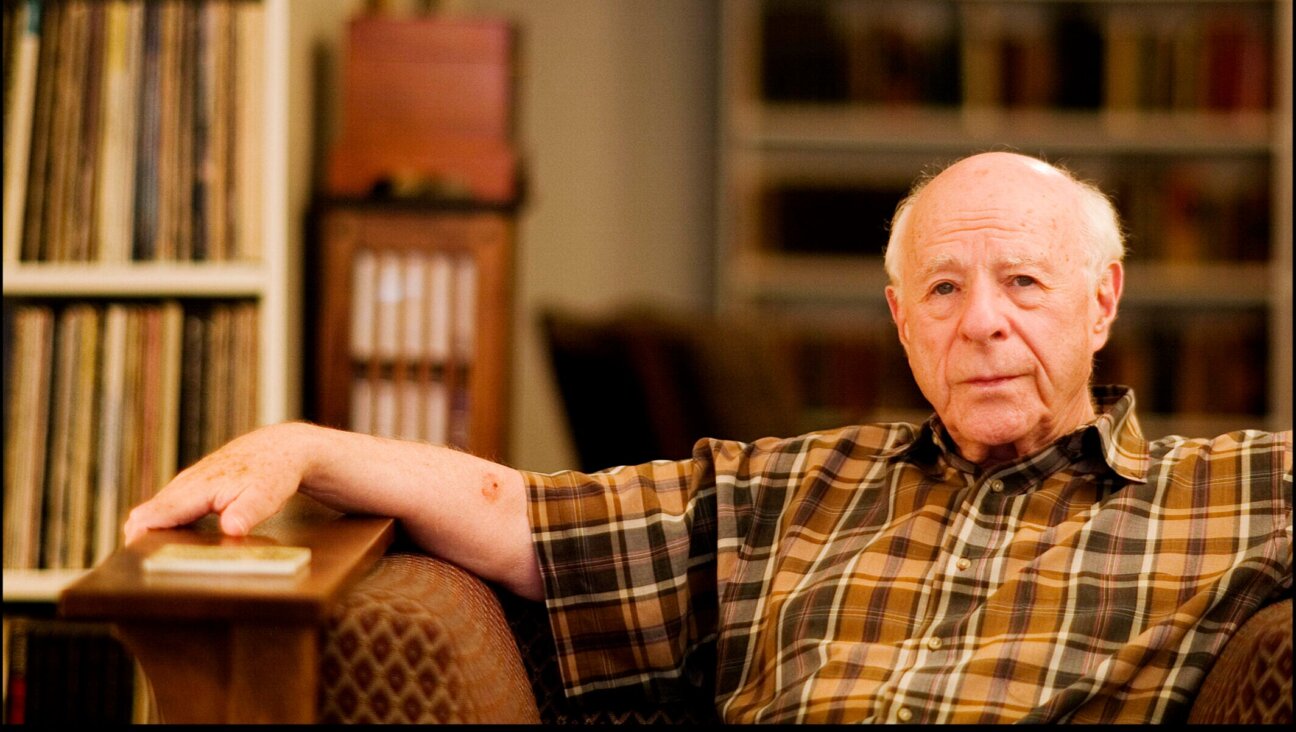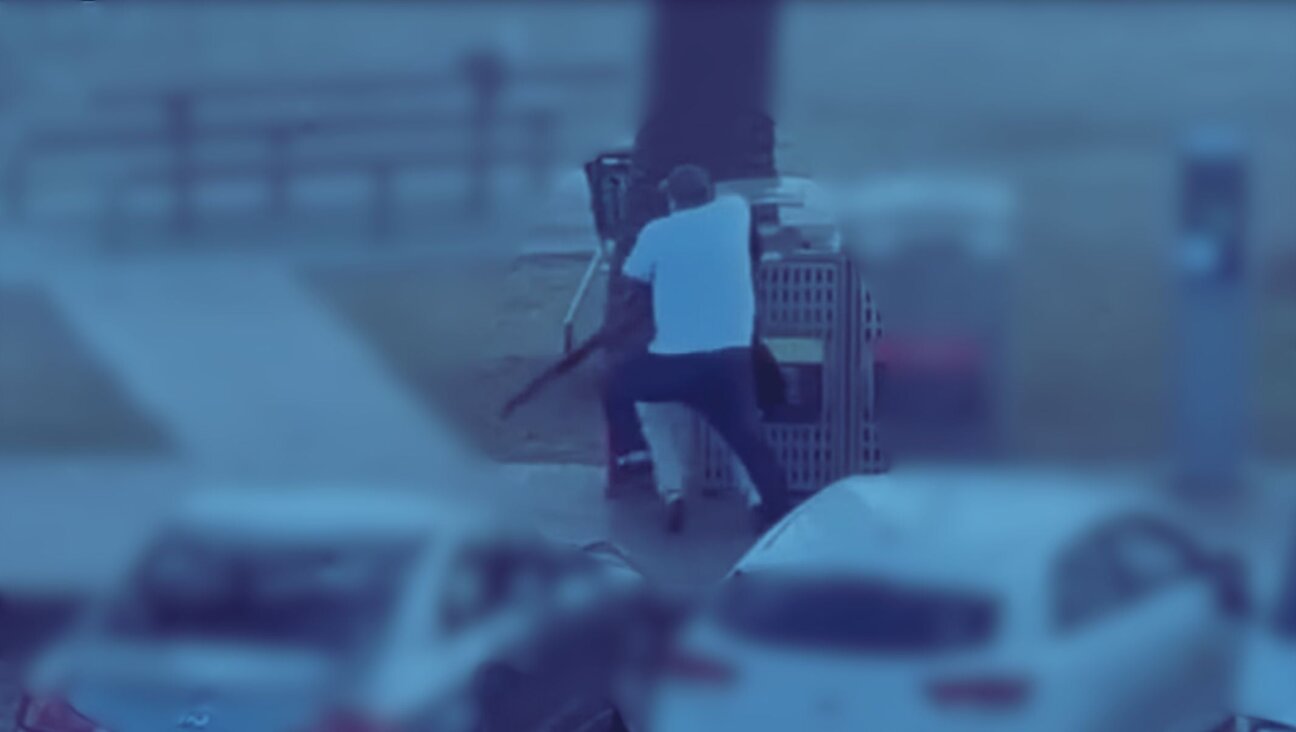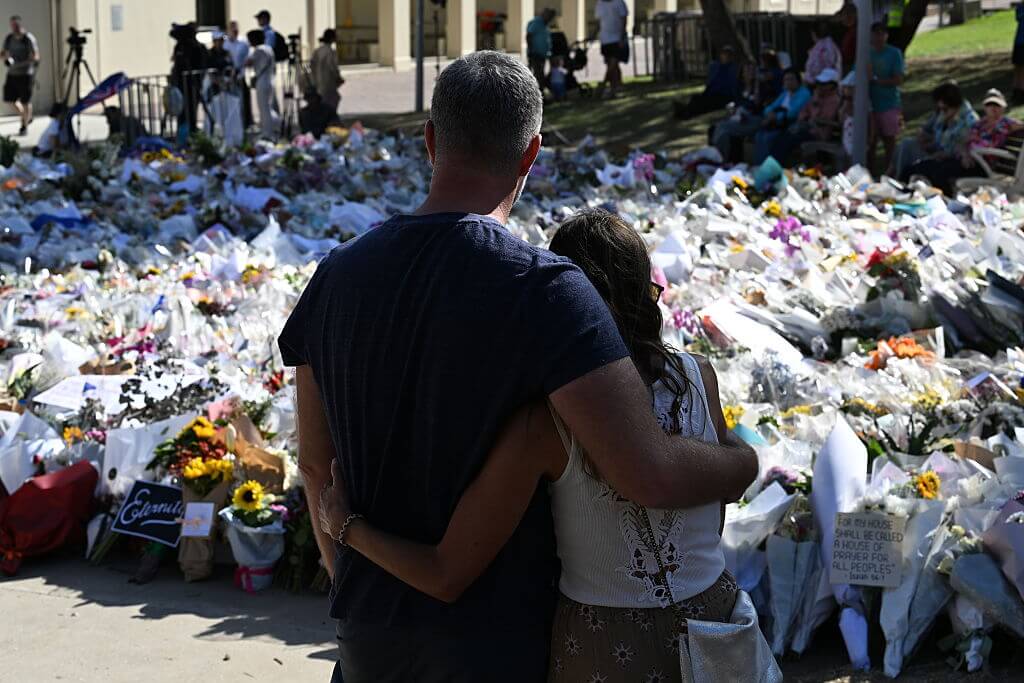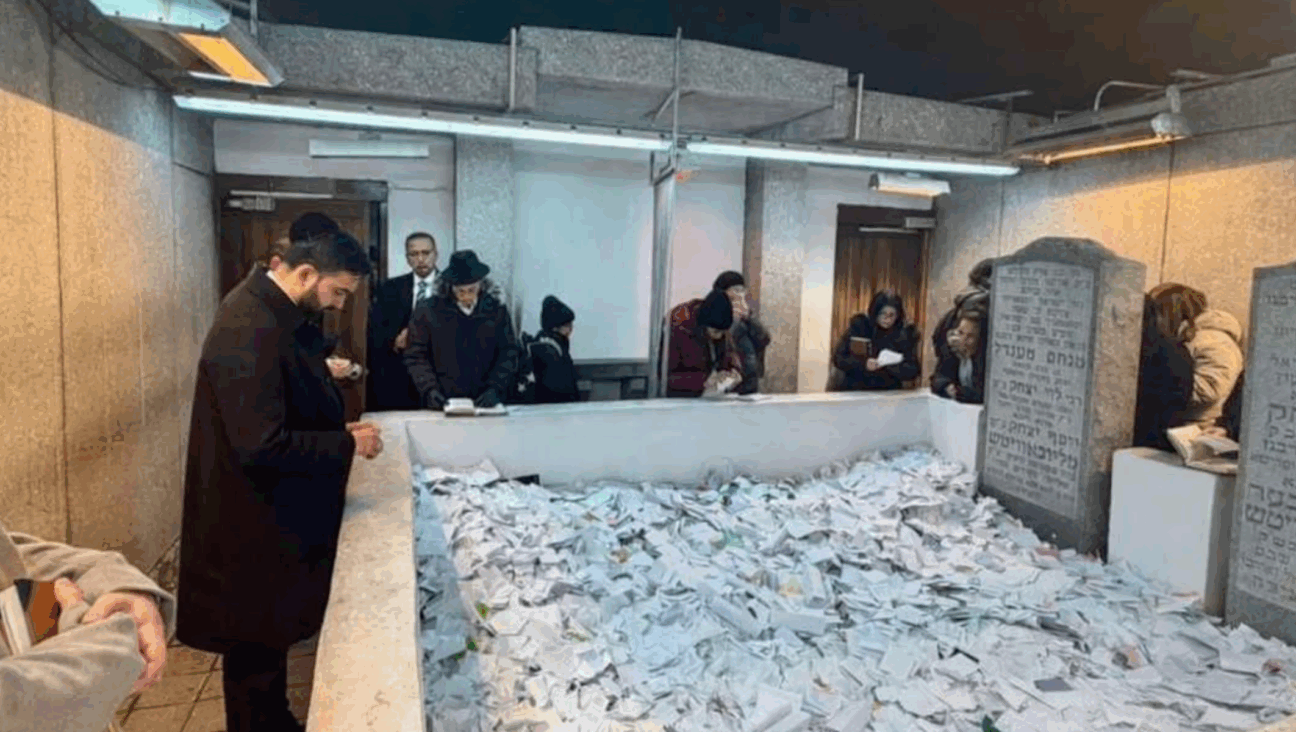110 Years of News in the Forward
Since the Forward began sending out reporters 110 years ago, the paper has been on top of nearly every major news event. The Forward’s mission was political but its first commitment was to telling its readers what they needed to know and telling them straight. Here is a selection of seven particularly decisive stories of the last century and a quick glimpse at how the Forward’s coverage stood out.
.
The Kishinev Pogrom: Jews Who Fought Back
From its earliest years, the Forward distinguished itself with on-the-ground reporting that clawed behind popular belief to get at the real story. One of the first big stories was the Kishinev pogrom in 1903. The pogrom has gone down in legend as a classic story of Jewish lambs going quietly to the slaughter, largely due to the reports of poet Hayyim Nahman Bialik, who visited after the pogrom was over and wrote out of long-held preconceptions about Jewish passivity. The Forward, on the other hand, had reporters on the ground and relied on nothing but what was in front of them. The stories they sent him were of the valiant Jews who fought back to the last.
1903 in the Forward:
“Rivers of Jewish Blood in Kishinev — The Bloodiest and Most Terrible of All Pogroms,” a Forward headline announces. On April 20, in the Bessarabian town of Kishinev, 24 Jews are murdered and 275 seriously wounded in the most violent attack ever on a Russian Jewish community. An organized band of peasants and laborers sets on the Jews of Kishinev with the goal of murdering them. If such an attack were to happen in Volhynia or Lithuania, the Forward comments, thousands of Jews would be killed in an hour. But the Jews of Kishinev are brave, fearless and strong as iron. When the pogrom begins, young and middle-aged men come from all over and fight like lions. But they fight bare-handed against attackers armed with knives and axes, ready to wipe out the Jews.
Turning on the Russian Revolution
The Forward’s relationship to communism was long, testy and frequently adversarial. Abraham Cahan, the Forward’s long-time editor, was an avowed socialist, but as time went on his first priority was increasingly the interests of world Jewry. Thus, when the Bolsheviks took over in Russia, the Forward was at first enthusiastic. For the pogrom-hardened Jews anything was better than the tsar. The paper’s headline read: “Jewish Troubles Are at an End.”
Very quickly, though, the Forward’s leadership developed a skepticism toward Lenin and the “red tsars.” After desperate appeals from democratic socialists inside Russia, Cahan made a sudden public turn away from the Soviet Union in 1923, to the shock of many American socialists. When Leon Trotsky made a similar move, the Forward reported on it with satisfaction.
1923 in the Forward:
Leon Trotsky admits that communism has failed in Russia, according to a report from Moscow. In an article appearing in Pravda, Trotsky explains that there will be changes in Russia’s industry that will be closer to capitalism in the New Economic Policy. Since Lenin’s illness, Trotsky has become the most important public figure in Russia, and his words carry great weight. These policy changes are the result of Trotsky’s own study of the state of industry in Russia. Pravda reports that Trotsky’s announced plans also carry the endorsement of the Executive Committee of the Communist Party.
For Roosevelt, a Socialist Paper Turns Its Back on the Socialist Candidate
Forward editor Abraham Cahan was an iconoclast who was always willing to cross his old allegiances if the winds of change so moved him. During his first stint as editor, soon after the paper was founded, Cahan took issue with the dogmatic socialism of the paper and quit. He was brought back a few years later with promises of editorial independence. Through the years he remained in the socialist camp and in 1932 the Forverts endorsed the socialist candidate for president, Norman Thomas.
Still, almost as soon as Franklin Delano Roosevelt was in office, pushing the New Deal, Cahan began to warm to the Democrat. In 1933, he began to publicly praise Roosevelt for moving in a socialist direction and in 1936 Cahan abandoned the socialist Thomas and threw the weight of the paper behind Roosevelt. The Jewish-led unions followed suit and created the American Labor Party so that Jewish socialists could vote for Roosevelt without pulling a lever for one of the two parties. The coverage in 1940 showed the changed mood at the paper.
1940 in the Forward:
In the final run up to the presidential elections, the Forverts campaigns strenuously for Roosevelt and the Labor party: “A vote for Roosevelt in this year’s Presidential Election is a vote Against the Black Crows of Reactionism and Fascism,” ran one headline. Not since Abraham Lincoln has such a “warm, humanitarian and noble personality” as Roosevelt sat in the White House. The Forverts celebrated Roosevelt’s sweeping victory at the end of the week with a front page article by editor Abraham Cahan. A large crowd celebrates outside the Forward building upon hearing the election results.
Hard Truths From Poland
In a sign of just how respected the Forward was in the Jewish world, a committee of hard-nosed Jews came to Abraham Cahan in the 1930s and asked for his permission to do away with Adolf Hitler. Cahan, an ex-anarchist, said no, but not because he did not know what Hitler was capable of. From the time Hitler took over, the Forverts published articles from inside Europe, warning of the looming storm. One article said, “There is talk of pogroms: not if they will occur, but when.” American newspapers have recently been taken to task for turning a blind eye to the Nazi atrocities in Europe, but the Forward never once flinched. Even as the war went on, and Jews could no longer travel inside Europe, the Forward provided a steady stream of smuggled reports and pictures detailing the grotesque nature of what was happening in Nazi-dominated Europe.
1943 in the Forward:
“Thousands of Jews in Poland are being gassed to death,” according to a report in the Forverts from London. Masses of Jews, earlier described as deported to “unknown places,” are in fact being executed in special “gas chambers” in Nazi concentration camps. This information appears in a 63-page report about the mass murder of Polish Jewry, which explains that the gas chambers at Treblinka can kill 500 Jews at a time, up to 5,000 Jews a day, and that “the death camps are being expanded.”
The Birth of Israel: Socialists Embracing Zionism
As with so many of the definitive issues of the 20th century, the Forward’s approach to Zionism shifted along with the facts on the ground. Initially, like many in the socialist camp, the Forward did not support the creation of a Jewish state, which was seen as a distraction from the internationalism that the socialists of Eastern Europe held dear. In 1925, Forward editor Abraham Cahan made a momentous, four-week trip to Palestine, where he wept at the Western Wall and wrote dispatches for the Forward.
Cahan returned with some skepticism about Palestine’s capability to host a Jewish state, but he had a new-found sympathy for the settlers. By the time of the worst Arab pogroms, in 1929, Cahan was solidly in the Zionist corner. The pages of the paper remained open for debate, playing host to the divergent opinions of the Forward’s editorial board. By the time of the Holocaust began, however, Cahan left no question that the Forward believed in the need for a Jewish homeland in Palestine. On the day this dream came true, in 1948, the banner headline was jubilant.
1948 in the Forward:
“America Recognizes the New Jewish State of Israel,” reads a banner headline on the May 15 edition of the Forward. The United States is the first nation to recognize the new Jewish state, doing so just 10 minutes after Israel was officially born. Beneath photographs of Israeli Prime Minister David Ben-Gurion and American President Harry S. Truman, the Forward prints the following declaration of the Jewish state: “The land of Israel is the birthplace of the Jewish people. Here the spiritual, religious and national vision of the Jews was created. Here they won their independence; here they created a culture of national and international importance. Here they created the Torah and gave it to to the world.”
Teachers Strike and a City Is Divided
As the Forverts aged, its audience opened up to other newspapers and the Forward evolved from a paper for Jews about the world to a worldly paper about the Jewish community. It provided a take on the Jewish world that readers couldn’t get anywhere else. In America, the affairs of Europe were receding into the background as the new dynamics of Jewish identity were worked out in relation to other ethnic groups that Jews lived next to — most of all blacks. The two communities had cooperated for decades in the civil rights movement. But new tensions were emerging.
The tensions came to a head in 1968, when New York introduced “community control” of local schools and a local school board in the mostly black Brownsville section of Brooklyn began firing its mostly white, Jewish teaching staff. The firings prompted a strike by teachers, led by a Jewish socialist named Albert Shanker. Shanker had marched with Martin Luther King in Selma, but now he was demonized for opposing black community control. The ill will colored black-Jewish relations for years to come. As always, the Forward was on the story.
1968 in the Forward:
After marathon negotiating sessions, the teachers strike that has kept more than a million of New York City’s children out of their schools for nearly three months is finally over. The strike created a great deal of antagonism between the city’s black and white populations. The Forverts wrote in an editorial that the strike was exploited by antisemites and racists who stoked the fires of hatred between blacks and Jews. “We must all do what we can to return to the normal, friendly relations we had with our black neighbors and we hope they will make the same effort…. One thing we must do is to convince the parents of black and Puerto Rican schoolchildren that we want their children to get a good education and that we are willing to help. We will therefore do everything we can to make decentralization a success.”
9/11: A New World
At the beginning of the new millennium, Jewish affairs were entering a global era in which Jews in America and Israel were moving further apart and closer together at the same time. The September 11 terrorist attacks created a burning crucible in which all of these relations were tested.
The attacks had the predictable effect of imbuing many Americans with a new sympathy for Israel Ρ most of all evangelical Christians. But it has also launched a ferocious debate both inside and outside the Jewish community about how closely the fates of Israel and America are intertwined — and to what degree the Jews have become public enemy number one. From the first day, the Forward saw the significance that this event would have for Jewish identity and the Jewish community.
2001 in the Forward:
“Suddenly, America was at war. It was a war that Americans had been watching for years from afar, a shadowy war of sneak attacks by invisible terrorists on busy city streets in exotic, far-off countries. Now it had come home to American soil. Suddenly, it seemed, the Middle East was here, and everyone was vulnerable. Tuesday’s attacks were, for lack of a better term, this generation’s Pearl Harbor — a paradigm-shifting event signaling an unprecedented era of threat, conflict and national sacrifice. Unlike Pearl Harbor, however, the attacks were not directed against uniformed troops in the Pacific, but against ordinary civilians, men, women and children, going about their business in the heart of America’s nerve center.”
















